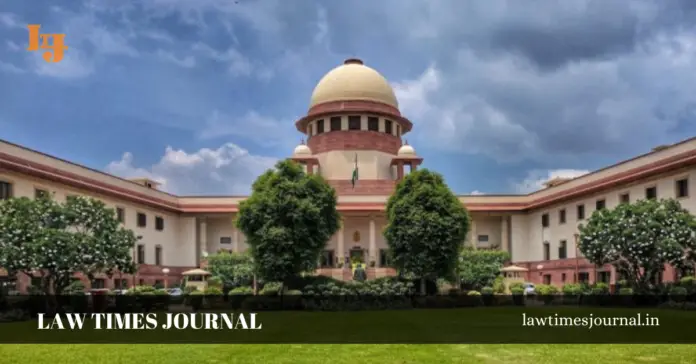
The Supreme Court has reiterated that a company’s Chairman, Managing Director/Executive Director, and others cannot be summoned in a criminal case if specific allegations about their specific role are not made in the complaint, as they cannot be held vicariously liable for the company’s criminal acts.
“They cannot be held vicariously liable for the offenses committed by A1 & A6 simply because they are Chairman, Managing Director/Executive Director, and/or Deputy General Manager and/or Planner/Supervisor of A1 & A6, without any specific role attributed to them and the role played by them in their capacity” in the case of Ravindranatha Bajpe v Mangalore Special Economic Zone and others, SC observed.
In this case, the private complaint was filed in this case against Mangalore Special Economic Zone Ltd and its contractor company, stating that they had trespassed into the complainant’s land and wrecked his compound wall while laying a pipeline.
The complaint had also named the company’s directors and other officers, accusing them of violating Indian Penal Code Sections 406, 418, 420, 427, 506, and 120B, as well as Section 34. The accused was served with a summons by the Magistrate. The Sessions Court later overturned the order, which was confirmed by the High Court in dismissing the complainant’s revision petition.
The complainant argued in his appeal that what is required to be reviewed at the stage of summoning the accused is whether a prima facie case is made out on the basis of the complainant’s oath and the information supplied at this point and that a full examination on the merits is not required. On behalf of the accused, it was argued that issuing summons/process by the Court is a very serious matter and that the Magistrate should not have issued the process unless there were specific allegations and the role attributed to each accused was more than a bare assertion.
Except for the bold statement that the accused conspired with a common intention to lay the pipeline within the schedule properties belonging to the complainant, without any lawful authority or right whatsoever, and in furtherance they committed trespass into the complainant’s schedule properties and demolished the compound wall, the court noted that there are no other allegations that the accused conspired with a common intention to lay the pipeline within the schedule properties belonging to the complainant, without any lawful authority or right whatsoever.
The learned Magistrate must record his satisfaction with the existence of a prima facie case against the accused, who is the Company’s Managing Director, Company Secretary, and Directors, and the role they played in their respective capacities, which is a pre-requisite for bringing criminal charges against them. There are no specific charges or averments regarding their job as Chairman, Managing Director, Executive Director, Deputy General Manager, and Planner & Executor in the complaint’s averments and allegations.
The learned Magistrate must record his satisfaction with the existence of a prima facie case against the accused, who is the Company’s Managing Director, Company Secretary, and Directors, and the role they played in their respective capacities, which is a pre-requisite for bringing criminal charges against them. There are no specific charges or averments regarding their job as Chairman, Managing Director, Executive Director, Deputy General Manager, and Planner & Executor in the complaint’s averments and allegations.
The bench of Justices MR Shah and AS Bopanna observed that criminal law cannot be set in motion on its own and that a magistrate granting summons must record his satisfaction about a prima facie case against the accused.








